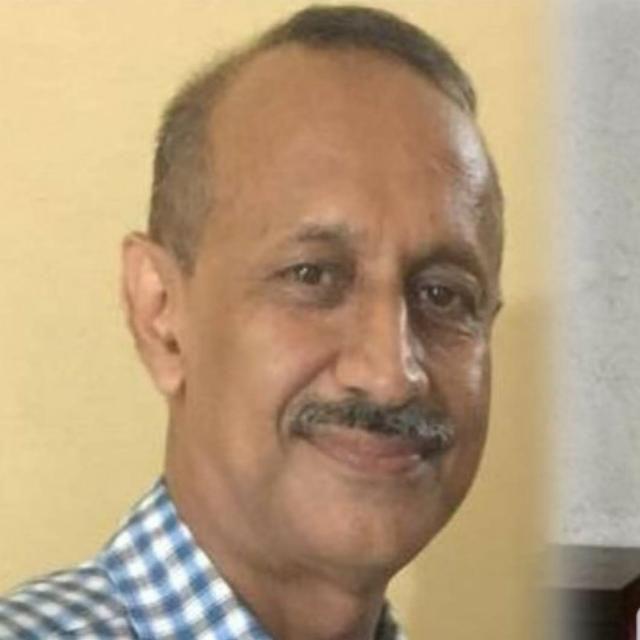.webp)
 Pallab Bhattacharyya
Pallab Bhattacharyya
Waqf, an Islamic endowment of property for religious or charitable purposes, is a longstanding tradition that plays a crucial role in societal welfare. It involves the permanent dedication of assets, rendering them non-transferable and meant to support community benefits like education and social services.
Originally, waqf was established as a means to donate property to Allah, ensuring its use for public good. Over centuries, it has become integral to Islamic philanthropy, funding institutions like schools, hospitals, and mosques. In India, waqf management has evolved through various legislations, with significant acts in 1954, 1995, and proposed amendments in 2024.
The Waqf (Amendment) Bill, 2024,which is under consideration of the Joint Parliamentary Committee (JPC) introduces significant changes:
Inclusion of Non-Muslims: Alters the composition of the Central Waqf Council and Waqf Boards to include non-Muslim members, sparking debate about the traditional Islamic governance of waqf; however this has been welcomed by many progressive Muslim personalities.
Survey and Ownership: Transfers the power to conduct waqf property surveys from the Survey Commissioner to the District Collector. It also clarifies that government property identified as waqf will cease to be so, with the Collector determining ownership. This provision is the bone of contention on the ground that the Collector will toe the line of the Government.
Removes the finality of Tribunal decisions, allowing appeals to the High Court, and alters the Tribunal's composition, excluding experts in Muslim law.
Criteria for Waqf Creation: Restricts waqf creation to individuals practicing Islam for at least five years, raising questions about inclusivity and discrimination.
Earlier under the Wakf Acts in India, a Mutawalli is responsible for managing and administering a Wakf property. His key functions include:
Management: Oversee the day-to-day management of Wakf properties, ensuring they are used according to the terms of the Wakf deed.
Maintenance: Ensure the maintenance and repair of Wakf properties to prevent their deterioration.
Financial Administration: Keep accurate financial accounts, prepare budgets, and ensure funds are utilized for the intended charitable or religious purposes.
Reporting: Submit annual accounts and reports to the State Wakf Board.
Legal Compliance: Ensure compliance with the Wakf Act and other relevant laws.
Performance of Mutawallis in India:
The performance of Mutawallis in India has been a mixed bag. Challenges include:
Lack of Training: Many Mutawallis lack the necessary training in property management and financial administration.
Corruption and Mismanagement: Instances of misappropriation of funds and mismanagement of properties are reported.
Bureaucratic Hurdles: Inefficiencies and delays in the Wakf Boards hinder effective administration.
Resource Constraints: Insufficient resources for maintenance and development of Wakf properties.
For Improving Functioning of mutawallis, the following actions can be initiated:
Training Programs: Implement structured training programs to improve the skills of Mutawallis in management and financial accountability.
Technology Integration: Use technology for better tracking and management of Wakf properties, including digital record-keeping and monitoring systems.
Strengthening Oversight: Enhance the oversight functions of State Wakf Boards to ensure compliance and accountability.
Legal Reforms: Simplify and strengthen legal frameworks to address issues of corruption and mismanagement more effectively.
Community Engagement: Encourage community involvement in the management and development of Wakf properties to ensure transparency and accountability.
Regular Audits: Conduct regular audits of Wakf properties and financial accounts to ensure transparency and proper use of funds.
Global Practices:
Middle East: Predominantly managed by religious authorities, waqf often supports educational and healthcare initiatives.
Turkey: The Directorate of Foundations oversees waqf, modernizing its management while preserving its charitable essence.
Southeast Asia: In countries like Malaysia, waqf is integrated into national development plans, supporting both religious and secular needs.
Practices Among Non-Muslim Communities in India:
Non-Muslim communities in India have analogous practices:
Hindu Endowments: Managed by trusts and temple boards, focusing on religious, educational, and cultural activities.
Sikh Gurdwaras: Operate under the Sikh Gurdwaras Act, emphasizing community service and religious observance.
Christian Trusts: Administered by church bodies, supporting educational and health services.
Best Way Forward:
To harmonize waqf management with modern needs while respecting religious traditions, the following actions may be initiated:
Inclusive Governance: Ensure diverse representation in waqf boards, balancing traditional practices with modern accountability.
Transparent Management: Implement clear guidelines and digital records for property management to prevent encroachment and mismanagement.
Interfaith Collaboration: Encourage dialogue and cooperation between different religious endowment boards to share best practices and enhance community welfare.
Legal Clarity: Clearly define legal frameworks governing waqf, ensuring they align with constitutional values and human rights.
Public Awareness: Educate communities about the purpose and benefits of waqf, dispelling myths and fostering goodwill.
ALSO READ: Prevention of crimes against women needs a holistic approach
By embracing these strategies, waqf can continue to serve as a powerful tool for social justice and community development in India and beyond.
(The writer is a former DGP, Assam Police & former chairman of Assam Public Service Commission)
